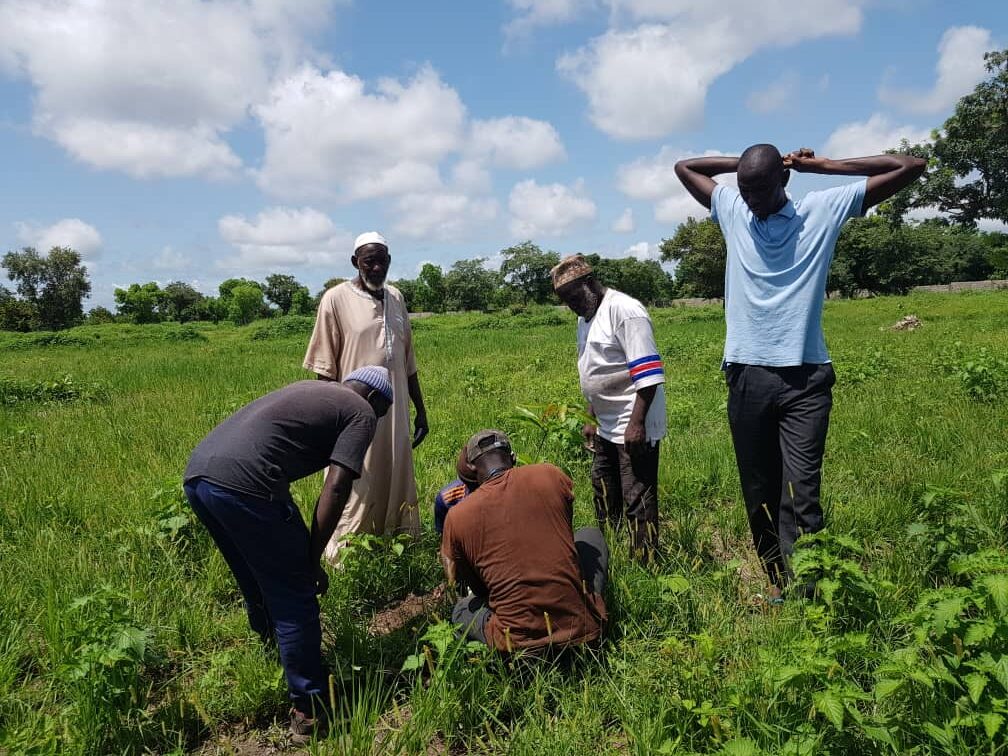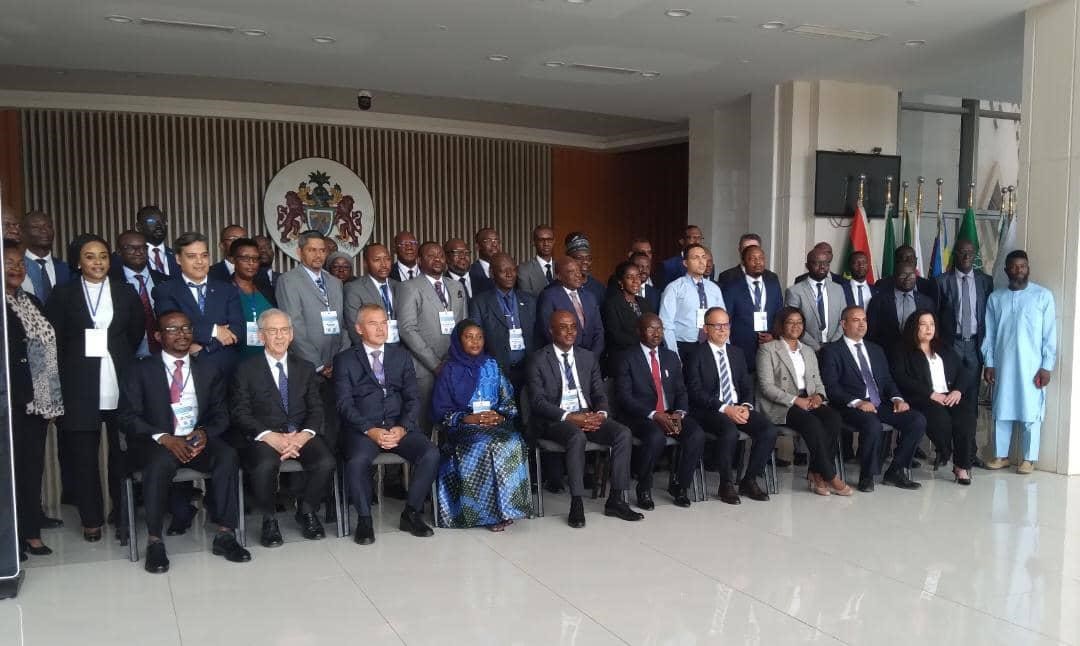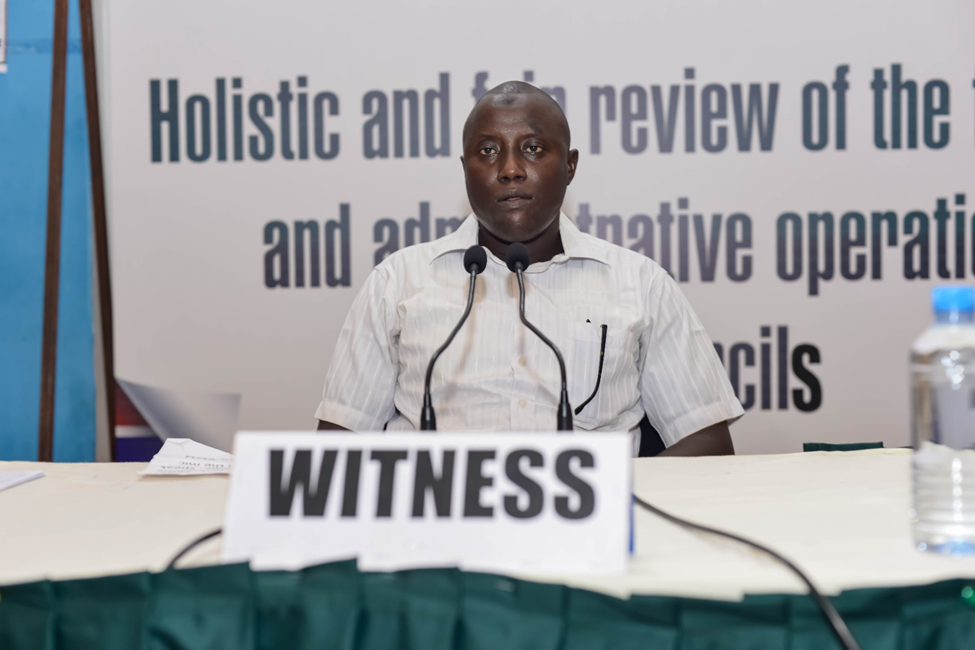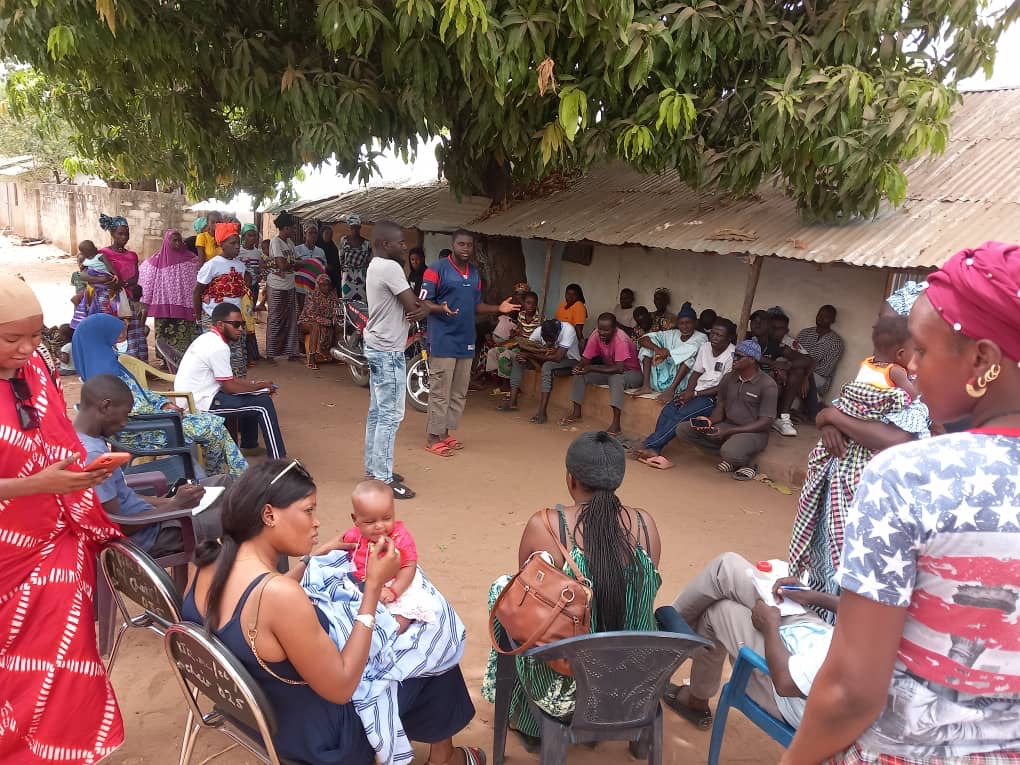In waging war against deforestation and minimising the impact of climate change in the community, residents of Kiang Jali, in the Kiang West District of the Lower River Region (LRR) over the weekend embarked on a massive tree planting exercise with the villagers planted over 2000 different types of seedlings across the village.
Tree planting exercise in this village is an annual event championed by the Village Development Committee, Kombo JalinkasDevelopment Association, and Su Kiang Jali Diaspora Association.
According to the organisers, the planting exercise is also used to cement existing cordial relationships that exist among the villagers most especially the young people.
The exercise shows the planting of 23 different types of seedlings which include forest trees to edible trees namely mahogany, detariun-senegelensis, gmelina, cassia samia, mangoes, oranges, and sweetshop among others.
Speaking at the event, the Alkalo of the village, Sutayring Drammehhailed the villagers for coming out with such an initiative, adding that it will go a long way in restoring the lost forest cover in the area. “During our time, we don’t have this kind of exercise. Therefore, I implore you all to continue on such an initiative for the betterment of the village.”
“Our objective is to ensure that there is unity among the villagers in our quest to bring rapid development to the village. Nothing will be achieved in the absence of unity among ourselves. Again, we are doing this tree planting exercise for our future generation to come as we are also enjoying the trees that were planted by our parents,” Lamin Kajutou Drammeh, the chairman of Kombo JalinkasDevelopment Association posited.
Wandifa Jankeh Drammeh, the coordinator of the initiative urged inhabitants of the village to ensure that the planted trees are protected from bush fire and animals, adding that the importance of trees cannot be over-emphasised in our lives and livelihoods.
Lamin Bajo, the regional forestry officer for the Lower River Region (LRR), urged other villages in the region to emulate Kiang Jali in the restoration of our lost forest cover.
“It’s evident that bush fire, rampant tree falling, and charcoal production are the major things happening in LRR. The region now recorded the highest number of bushfires which has contributed to the great reduction of the forest cover in the region. Previously, it was considered that LRR, especially in the inner part, was one of the areas with the biggest forest cover. However, due to the activity of tree falling and charcoal production among others, it’s now history which is causing serious trouble to the forest environment.”
Bajo further added: “If such practices continue in a few years to come, the area is going to suffer seriously and it will cause forest degradation the impact of which will be global warming and climate change. We depend on rainfall for our agricultural purposes. This year, we have seen drought persist in the region for more than 20 days before we have rainfall. This is an alarming example to everybody that if what is happening is not stopped and measures are not taken, then it will result in higher consequences that we may not be able to bear.
“Therefore, it’s important to restore those places that have been affected by fire or people during tree cutting or charcoal production. Restoring those places is very crucial not only for the people but also for the domestic animals we have,” he said, while further claiming that tree planting will go a long way in combating global warming and at the same time minimise the impact of climate change on people.
The tree planting exercise ended with the planting of trees at the hospital, women’s garden, young farmers’ farm, village forest, and others distributed to various compounds.





